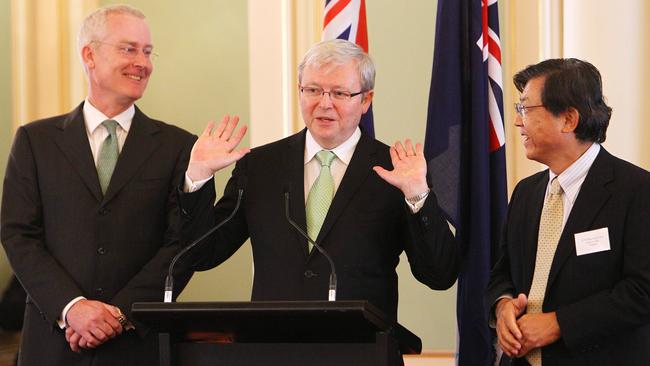New Foreign Investment Review Board chair signals Australia has its doors open
New FIRB chairman Bruce Millar has said Australia welcomed foreign investment, despite recent moves to address national security concerns.
The Foreign Investment Review Board’s new chair Bruce Miller has signalled to the world Australia is open to foreign investment.
In his first public speech since taking on the role in April after the death of chairman David Irvine a month earlier, the former Australian diplomat and chief intelligence analyst said the nation had always relied on foreign investment and “we welcome it”.
The former ambassador to Japan and director general of Australia’s intelligence body, the office of National Assessments, said it needed to be repeated that despite strengthening the nation’s foreign investment framework, including significantly increasing application prices, it remained focused on encouraging investment into Australia, all the while ensuring investments were in Australia’s national interest.
“Australia is not unique in doing this – we see many like‑minded nations making similar changes to their foreign investment screening regimes to address national interest and national security concerns,” Mr Miller said.

In July the federal government doubled foreign investment review board application fees, a move that was criticised by agricultural property specialists who saw its potential to erode foreign investor confidence.
But Mr Miller said the case for foreign investment continued to be strong, and to support the continuation of this investment in Australia Treasury would begin streamlining the processing of applications.
“It is a work in progress,” Mr Miller said, admitting processing times in recent years have been “volatile”.
The average processing time in 2020-21 was 50 days and 52 days in 2021-22, well in excess of the statutory time frame of 30 days for making a decision on an application.
He said those times have since stabilised, dropping to 44 days in recent months.
Elders real estate executive general manager Tom Russo said there has been a consistent level of capital wanting to find a home in Australian agricultural land for the past seven years.
“And it’s all off the back of macro economics, global trends where we’re seeing increasing populations, but more importantly those populations becoming wealthier and having the ability and income to purchase higher quality food, and the beauty of that is a lot of those populations are on our doorstep in the ASEAN nations,” Mr Russo said.
CBRE managing director David Goodfellow said some investors have raised the doubling of FIRB application fees, “but they are what they are and people still recognise Australian land is still very cheap on a global scale, particularly the big super funds”.





